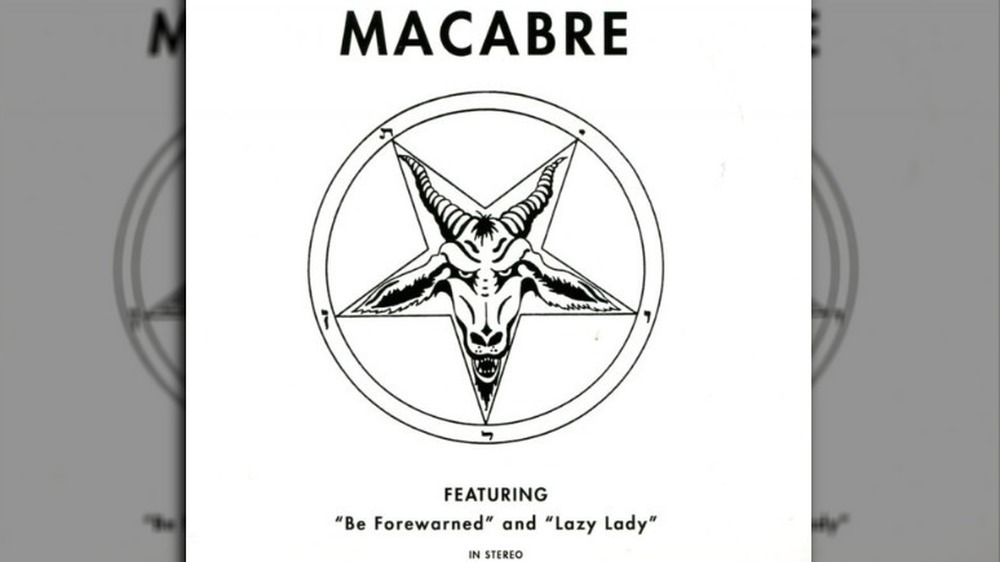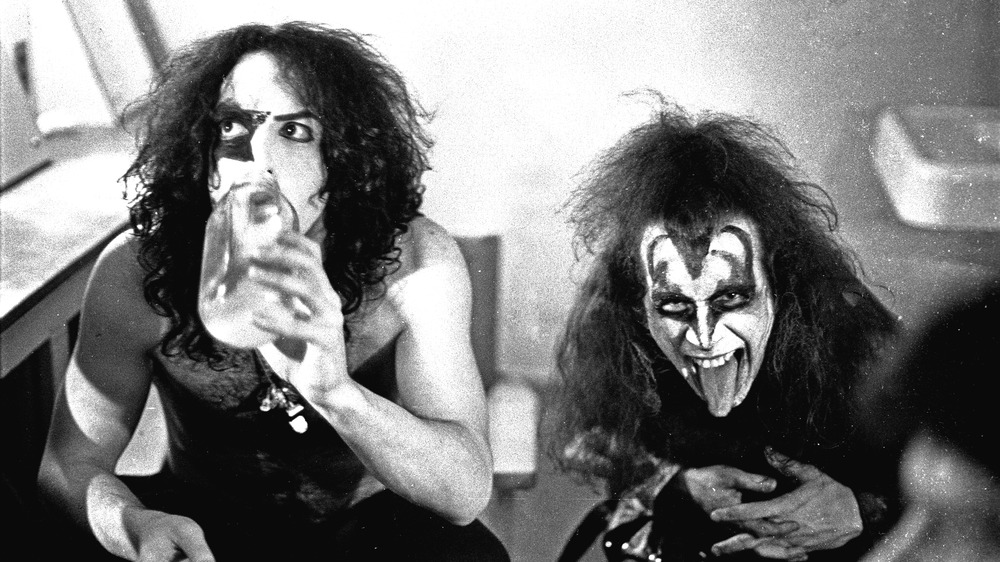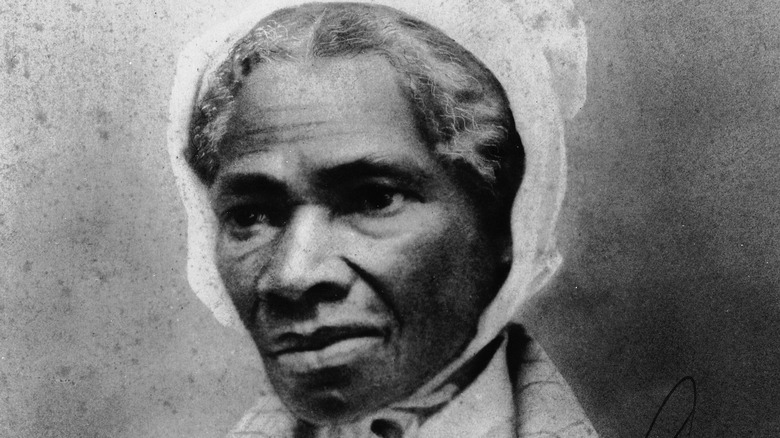
The Untold Truth Of Pentagram
They may not have gained widespread recognition or commercial success in their five-plus decades of existence, but doom metal veterans Pentagram are well-known to many devotees of the sub-genre. At a time when Black Sabbath and other iconic acts were laying the foundation for what we know today as heavy metal, the Virginia-based band was similarly cranking out mostly slow-paced, yet hard-hitting songs about dark and foreboding topics, building up a cult following in the years that followed. It can be argued that Pentagram is one of the early American metal bands that should have been much bigger.
Unfortunately, there have been many factors that have caused Pentagram to remain in relative obscurity — or get mentioned in rock headlines for the wrong reasons. Drug problems, several failed attempts to secure a major-label contract, allegations of inappropriate behavior on tour, and too many lineup changes to detail — the latter being a gross understatement — have all plagued the band through the years. There’s also a lot that remains mostly unsaid about this seminal act, starting with the confusion about their origins.
They initially went by several different band names
Although there’s little doubt that Pentagram was formed in 1971 and has almost always been led by frontman Bobby Liebling, they had a bit of an identity crisis during their earliest years as a band. According to their AllMusic biography, Pentagram went by a number of alternate names around that time, including Virgin Death, Stone Bunny, and Macabre. They had, in fact, used the latter name on their first single, “Be Forewarned,” in 1972. Here, Liebling seemingly sings from the point of view of a crazed serial killer, repeatedly warning his intended victim that he’s never going to let her go.
On the other hand, Pentagram’s biography on Spirit of Metal tells a different story about the Stone Bunny name. As explained, Liebling was briefly bandmates with guitarist John Jennings, bassist Greg Mayne, and drummer Geof O’Keefe in a Washington, D.C., group called Space Meat, which changed their name to Stone Bunny when the singer joined.
Liebling would leave after a few months as Stone Bunny went back to their old name and ultimately disbanded, and by the fall of 1971, he and O’Keefe, who had switched to guitar, teamed up with bassist Vincent McAllister and drummer Steve Martin to form the first lineup of Pentagram.
Beef with Blue Öyster Cult producer
Given the strength of early songs like “Be Forewarned,” “Forever My Queen,” and “When the Screams Come,” it shouldn’t be surprising that Pentagram drew the attention of some of rock music’s biggest names in the 1970s. However, misfortune was always on the horizon in one way or another for Liebling and company. A couple of incidents from 1975 stand out as classic examples of how Pentagram seemingly had a knack for snatching defeat from the jaws of victory.
In an interview published on Please Kill Me, Blue Öyster Cult producer Murray Krugman recalled that Liebling impressed him with a “star quality” that resembled that of Jethro Tull singer/flautist Ian Anderson. However, things went awry during a demo session where Liebling expressed unhappiness with the background vocals he and his bandmates recorded on one song. When Krugman tried to convince Liebling that he knew what he was doing when it came to the recording and mixing process, the frontman allegedly decided that he wouldn’t be “moving on” with the session.
“Well, at least Blue Öyster Cult knew to let me do the first record my way,” the producer lamented. “This guy doesn’t know to let me do the demo my way.”
Why KISS was allegedly unimpressed by Pentagram
The second unfortunate incident from 1975 involved an even more famous act from the 1970s, and it wasn’t their producer who was involved, but rather their two most visible members. That year, KISS was on top of the world as one of the world’s biggest rock bands, and Gene Simmons and Paul Stanley took an interest in Pentagram, inviting the young band to perform in front of them. However, the Demon and the Starchild were not impressed by the audition, and in a 2010 interview with Invisible Oranges, Liebling explained why this was apparently the case.
“They said the bass player has too bad acne, the guitar player looks like a statue, the singer is ugly, and the drummer is fat,” he recalled, adding that he believes Simmons and Stanley still liked his band’s music.
Despite how KISS’ main men allegedly didn’t see Pentagram as being attractive or charismatic enough for rock stardom, Liebling maintained that he still loves and respects the band because of their ability to entertain audiences.
Bobby Liebling describes himself as a 'spiritual' man
The name should probably say it all — Pentagram is a band that isn’t afraid to sing about the dark side, and they have multiple songs that reference the devil in the lyrics. However, Liebling claimed in a 2015 interview with Vice’s J. Bennett that while he doesn’t believe in “the church,” he is a “very spiritual” person who spends a good part of his day talking to God.
“It’s carried me this far,” the frontman explained. “I’m a rock star, and I never thought I’d get near something like that. I’m not perfect, but I’m doing things right more and more.”
Liebling went on to stress that since he found his spiritual side, there haven’t been any more upside-down crosses or other forms of demonic symbolism included in their shows.
Despite his apparent attempts to straighten out his life, Liebling found himself surrounded by controversy just one year after that interview. After dropping out of a tour with Pentagram, two female-led bands accused the singer of sexually inappropriate behavior, which included unwarranted “touching” and an array of lewd comments and on-stage rape jokes.
Here's how many people have been in Pentagram
Simply put, Pentagram is the epitome of the term “revolving-door band.” According to MetalSucks, there was a brief period when Liebling was not in the group, and that was when he was sentenced to 18 months in prison in the late 2010s for allegedly assaulting a “vulnerable” adult believed to be his elderly mother. Otherwise, the now-67-year-old singer has remained the only true mainstay in a band that has seen a total of 37 people come and go since 1971, as noted in a 2015 article from Revue.
While there have been some additional lineup changes since then, the above figure remains the same. That’s because they have had multiple on-and-off members, including longtime guitarist Victor Griffin, who left in 2019 and was replaced by Matt Goldsborough. True to the revolving-door tradition, Goldsborough had previously toured a few times with Pentagram but had never recorded or written songs with them at that point.
Aside from Liebling and Goldsborough, the current Pentagram lineup features bassist Greg Turley and drummer “Minnesota” Pete Campbell, as shown on their Encyclopaedia Metallum page.

The Truth About Dave Grohl's Relationship With Kurt Cobain

Michael K. Williams' Tragic Death Explained

The Untold Truth Of Modest Mouse

Marilyn Manson Turned Himself In To The Authorities. Here's Why

The Tragic Death Of Woody Guthrie

The Way Robert Plant Played A Role In Rush's Return From Hiatus

The Tragic Death Of The Ultimate Warrior

The Untold Truth Of Cicely Tyson

Here's How Much Cloris Leachman Was Worth When She Died

How Trent Reznor Got Started In Music




























